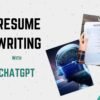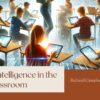Welcome to the future of education, where AI-driven chatbots like ChatGPT are transforming the way we teach and learn. As educators, our primary mission is to inspire curiosity, ignite discussion, and encourage critical thinking. In history classes, this is paramount. With the aid of technology like ChatGPT, we can facilitate an immersive learning experience, promoting student engagement through AI conversations.
The Intersection of History and AI: A Revolutionary Teaching Approach
History isn’t just about memorizing dates and facts; it’s about understanding complex events, debating differing viewpoints, and drawing connections to the world today. Traditional teaching methods often fail to engage students, resulting in passive learning. But what if we could revolutionize this? Enter ChatGPT, an AI tool that uses machine learning and natural language processing to comprehend and respond intelligently to user inputs.
ChatGPT can bring a fresh, interactive dimension to your history lessons. It’s like having an assistant who can converse with students, respond to their queries, and even participate in debates! With the ability to handle a wide range of topics, ChatGPT makes for a versatile teaching tool. Whether you’re discussing the civil rights movement or the fall of the Roman Empire, ChatGPT is up for the challenge.
Engaging Students Through AI Conversations
So, how can you incorporate ChatGPT into your history lessons to engage students? Here are a few suggestions:
Facilitating Discussions and Debates
ChatGPT can be an excellent tool to facilitate discussions and debates among students about various historical topics. Its ability to provide detailed and immediate responses allows students to delve into the intricacies of history without the need for a physical person to guide them. Here are two specific examples to illustrate this:
Example 1 – The American Civil War:
Suppose a teacher is teaching a unit on the American Civil War. The teacher could instruct students to research a particular aspect of the war (such as the causes, key events, or major figures) and then have a discussion or debate with ChatGPT on their findings. The AI can play the role of a knowledgeable discussant, posing questions, challenging students’ interpretations, and providing additional information or perspectives that the students might not have considered.
Prompt: “ChatGPT, can you explain the economic differences between the North and South during the Civil War era? Some argue that these differences were the primary cause of the war. What’s your perspective on this?”

Example 2 – The Renaissance Period:
Consider a lesson about the Renaissance. A teacher could ask students to explore the lives and works of two Renaissance figures (such as Leonardo da Vinci and Michelangelo) and then use ChatGPT to simulate a dialogue between the two artists, with students taking turns playing the role of each artist. This would help students understand the historical context in which these artists lived and worked, as well as the unique contributions each made to the Renaissance.
Prompt: “Hello ChatGPT, I’m playing the role of Michelangelo. Let’s assume you are Leonardo da Vinci. Let’s discuss our artistic styles and philosophies. How do you think our differences reflect the broader cultural trends of the Renaissance?”

Enabling Inquiry-based Learning
Encourage students to ask questions and explore historical events using ChatGPT. This AI can respond to inquiries, helping students delve deeper into their subjects of interest. Overall, ChatGPT is an innovative tool that can enhance student’s learning experiences in history.
By facilitating discussions and debates, as well as enabling inquiry-based learning, students can engage with the subject matter in a more interactive and meaningful way. With its ability to respond to inquiries and prompt critical thinking, ChatGPT is a valuable resource for students looking to deepen their understanding of history.
Example 1 – Exploration of Ancient Civilizations:
Prompt: “ChatGPT, I’m interested in the daily life of people in Ancient Egypt. Could you provide some insight into their routines, occupations, and social hierarchy?”

Example 2 – The Industrial Revolution:
Prompt: “ChatGPT, what were the key technological innovations during the Industrial Revolution? How did they impact society, the economy, and the environment at that time?”

Example 3 – World War II:
Prompt: “ChatGPT, can you explain the factors that led to the rise of fascism in Germany and Italy? How did these political ideologies contribute to the start of World War II?”

These prompts encourage students to investigate topics of interest and receive detailed, informative responses from the AI. It fosters a learning environment where students are motivated to delve deeper into historical events and phenomena.
Fact-checking and Text Analysis
History lessons often require students to sift through primary and secondary sources. With ChatGPT, students can run fact-checking exercises or conduct text analysis on these documents. While it’s not a substitute for comprehensive research, it can serve as a powerful tool to cross-verify information and identify potential areas for deeper investigation.
Example Prompts
- “ChatGPT, could you help verify if the Treaty of Versailles directly led to World War II?”
- “Hey ChatGPT, can you summarize the main points in the Federalist Papers?”
- “ChatGPT, I came across a statement saying that the American Civil War was solely about states’ rights and not about slavery. Could you provide more context to this?”
Critical Thinking and Perspective Building
Through simulated conversations with ChatGPT, students can engage in debates, helping them view historical events from different perspectives. This can be a valuable exercise in building empathy and critical thinking skills.
Example Prompts
- “Hey ChatGPT, could you provide arguments for and against the implementation of the New Deal during the Great Depression?”
- “ChatGPT, how might British colonialism be viewed differently from the perspective of a British colonist and an Indian native during the 19th century?”
- “ChatGPT, what are some opposing viewpoints regarding the dropping of atomic bombs on Hiroshima and Nagasaki in World War II?”
Differentiation, Remediation, and Assessment with ChatGPT
ChatGPT isn’t just a conversation tool; it’s a vehicle for personalized learning. It can help facilitate differentiation in instruction, catering to the individual learning styles and needs of students.
Struggling students can benefit from remediation exercises using ChatGPT. The tool can provide additional practice and clarification on complex topics, offering immediate feedback to support learning.
Additionally, ChatGPT can play a part in assessing student understanding. While it won’t replace traditional assessments, it can provide insights into a student’s comprehension and progress, inform instruction, and help identify areas for improvement.
Embracing the Future of Education
There’s no denying that artificial intelligence is becoming increasingly integral to educational technology. By incorporating AI tools like ChatGPT into history lessons, we can create a more engaging, interactive, and personalized learning experience for our students.
The transition to blended learning methodologies such as the flipped classroom model, where AI and human instruction coexist, marks a significant stride in education. Let’s harness the power of AI to stimulate our students’ minds and prepare them for the future.
Conclusion
In an era where digital literacy is crucial, integrating tools like ChatGPT into history lessons can elevate the learning experience and foster student engagement. By stimulating discussions, promoting critical thinking, and facilitating personalized learning, ChatGPT proves to be a versatile tool that can transform the classroom environment.
As we move forward, let’s explore and experiment with this technology. Together, we can redefine education and prepare our students for a future where artificial intelligence will be a part of their everyday lives. The next chapter of education awaits us.









Recent Comments